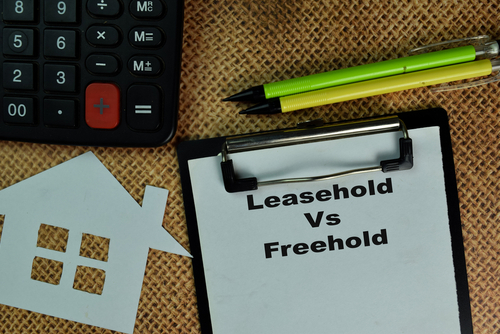Shortly after the Leasehold and Freehold Reform Act was granted Royal Assent in May, we surveyed members of the Association of Leasehold Enfranchisement Practitioners (ALEP). One response - echoed in the sentiment of many others - was, “This Act leaves more uncertainty than certainty”.
So, what is in the Leasehold and Freehold Reform Act 2024, what does it change (and when?), what doesn’t change and what happens next?
Initially announced in last November’s King's Speech, the Leasehold and Freehold Reform Bill was rushed through Parliament with unusual speed. It was the last Act passed in the ‘wash-up’ of parliamentary Bills in the final session of the Conservative administration and was granted Royal Assent on 24 May 2024.
In terms of its content, all the much talked about changes are there, including the 990-year lease extension, abolition of the two-year rule and the change in qualification criteria for mixed use buildings. In addition, we will see the end of marriage value for leases under 80 years and the end of the ability for the landlord to recover their costs from the tenant under a standard statutory claim. There are also changes that relate to property management.
The valuation changes will mean that most valuations will be on the ‘standard’ basis – effectively a term and reversion calculation with a presumed 0.1% cap on the ground rent when valuing the freeholder’s interest. In addition, there is a ban on the creation of new leasehold houses.
Insolvency practitioner
Details on commencement are set out in Section 124 of the Leasehold and Freehold Reform Act. A small number of provisions came into force on 24 July: measures relating to the remedy for rent charge arrears; the repeal of Section 125 of the Building Safety Act 2022; new procedures under that 2022 Act where an insolvency practitioner is appointed for a higher-risk or relevant building; and a measure which allows the recovery of legal and other professional service costs via the service charge, where they are incurred by a resident management company or right to manage company in connection with obtaining remediation contribution orders under that 2022 Act.
The remainder of the Leasehold and Freehold Reform Act 2024 will come into effect at the discretion of the new Government and is not yet in force.
Most of the ‘meatier’ parts of the Act, as far as leasehold reform is concerned are likely to be subject to commencement under Statutory Instruments. These Statutory Instruments will need to be made by the new Secretary of State, Angela Rayner, and we also know that in order to be effective, the valuation changes will need various matters such as the relevant rates to be prescribed. These will need to be in place before these changes can be enacted. It is quite possible that consultation on these will be needed before the full detail of the enabling legislation can be produced.
It Is hard to predict, but given the above, the most likely timescale seems to be 2025-2026 because of the need to draft the secondary legislation needed to bring the changes into effect.
Late-stage amendment
The Bill’s tricky path through Parliament (where it attracted significant opposition from both sides of the House) means that not everything set out in the original Draft Bill has (or will, under the existing legislation) come into effect. Most notable is the much-discussed cap on ground rents, whether that be at £250, a peppercorn (nil) or otherwise. The thinking had been that this might make it into the Bill, if the outcome of the consultation was published prior to the parliamentary stages being completed. It could then have been the subject of a late-stage amendment. The truncated process meant that this could not happen and so changes to ground rents will have to wait for further legislation under the new government.
There is no news at the moment as to when (if at all) the results of the consultation will be published although the Labour manifesto committed to controlling ground rents and the King’s Speech also promised that the draft Leasehold and Commonhold Reform Bill would be “tackling existing ground rents by regulating ground rents for existing leaseholders so they no longer face unregulated and unaffordable costs”. This suggests that this may be the subject of future legislation and held over until the new Bill is presented to parliament.
Although Labour’s draft Bill is not expected imminently, it is likely to bring about significant additional changes. For example, it is expected to make commonhold compulsory for new flats and “end the injustice of forfeiture” for residential leases. In addition, it promises to tackle unfair ground rents and freeholds where estate management charges sit outside the service charge regime.
The draft Bill will also enact the “remaining Law Commission recommendations to bolster leaseholders’ fundamental rights”. The Law Commission in its report on Enfranchisement made a significant number of recommendations and suggested a larger programme of consolidating and reforming legislation.
This is therefore quite an ambitious programme of work and so a draft Bill is likely to take quite some time to produce. With that in mind, it may well be that this legislation does not make it into the first legislative session of this Parliament, given the amount of groundwork that would need to be done to bring this legislation forward.
So, anyone expecting an immediate change may well have to wait a little while. We may well know a bit more once parliament starts sitting at the start of September, so watch this space.








%20Michael%20Gove%20wastes%20opportunity%20by%20Graham%20Norwood.jpg/1%20EAT%20-%20IndustryViews%20(002)%20Michael%20Gove%20wastes%20opportunity%20by%20Graham%20Norwood__400x194.jpg)




.png)


.png)



Join the conversation
Be the first to comment (please use the comment box below)
Please login to comment